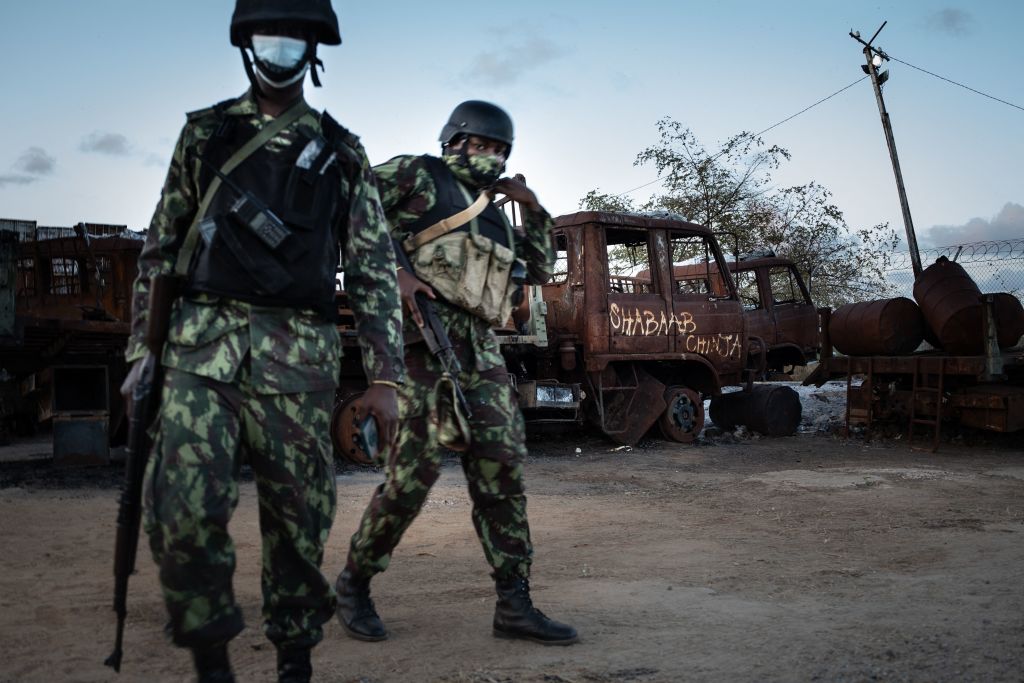Insurgents Strike Cabo Delgado with Remote-Controlled IEDs
ADF STAFF
There are signs of progress in the fight against the Islamic State group (IS) and other terrorist groups in Mozambique’s Cabo Delgado province. But a spate of recent attacks show that the insurgents are far from defeated and are executing more sophisticated strikes.
A remote-controlled improvised explosive device (IED) badly damaged a Mozambican Defense Armed Forces (FADM) armored vehicle in Quiterajo in July. The explosion triggered a gunfight during which at least one FADM Soldier was killed, according to a report by Cabo Ligado, which is published by the Armed Conflict Location & Event Data Project.
Insurgents have used such roadside bombs in the province since at least September 2021, but until June the explosives were typically rudimentary devices that explode when they are run over by vehicles or stepped on. Rebels used the first known remote-controlled IED attack in the province near Cobre and Ilala on June 18.
“The better-targeted use of IEDs through remote control, allows for tighter control of roads, and the set-up of ambushes,” the Cabo Ligado report said. “This is likely to restrict the movement of FADM and SAMIM (Southern African Development Community Mission in Mozambique) patrols. It may also create fear amongst those forces, with unpredictable results.”
The insurgents’ introduction of remote-controlled roadside bombs into their arsenal coincided with the South African Development Community’s (SADC) decision to extend its military mission in Cabo Delgado by one year, to July 2024. The SADC also announced a phased troop drawdown beginning in December.
Officials made the decision after a field assessment report conducted by military, police and civilian personnel from member states concluded that Cabo Delgado is “now calm and state institutions are functional.”
Piers Pigou, the Southern Africa program head at the Institute for Security Studies, disagreed and characterized the field assessment’s claim that roads across the province are now safe to use as “bordering on irresponsible.”
“Talk of any date of withdrawal is aspirational,” Pigou told Zitamar News. “They may kick the can down the road, but they are indicating their intention to exit.”
There have been military gains in the province. A bilateral military pact with Rwanda and its 2,800 troops has helped stabilize Palma, a strategic port city where a gory two-week siege in 2021 left about 60 people dead, including children. SAMIM and its 1,900 personnel have also helped improve the security situation in other parts of the province.
Critical roads have reopened, and some commerce and humanitarian aid has begun to return along with some basic services. Most importantly, about 350,000 internally displaced people (IDP) returned to their homes.
But due to the insurgents’ resiliency, many, like Hasmane Alfa, are afraid to return. Alfa, one of more than 800,000 people displaced by fighting since 2017, was 18 when armed men attacked his home village of Quissanga three years ago. He was separated from his father for four days and didn’t know if he was alive.
Alfa now lives with relatives in Pemba, the provincial capital, which is 102 kilometers south of Quissanga. He yearns for stability in the region.
“There is a common song among all displaced people: Peace! We want peace and tranquility and recover the few things we had,” Alfa told Voice of America (VOA).
Mariana Camaroti of the Red Cross in Mozambique said thousands have returned to their homes in Cabo Delgado since the second half of 2022, although many still struggle.
“These people who were living in [IDP] camps or hosted by families faced many challenges in accessing basic services such as health, education, food, clean water and livelihood,” Camaroti told VOA. “Today, displaced, they continue to face the same challenges.”


Comments are closed.